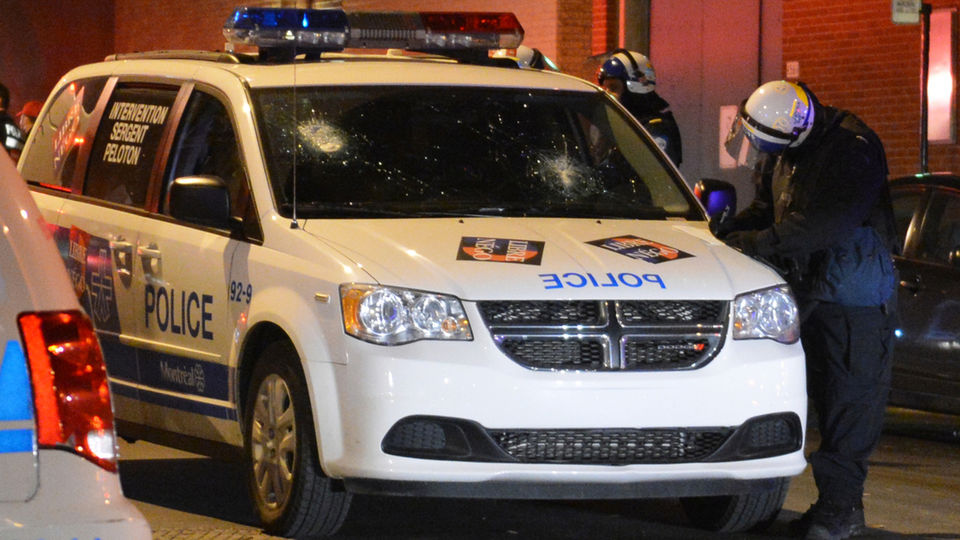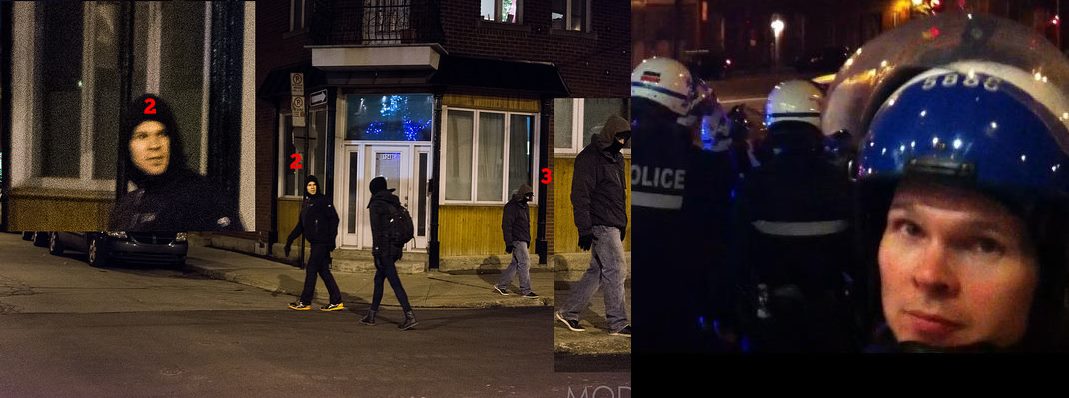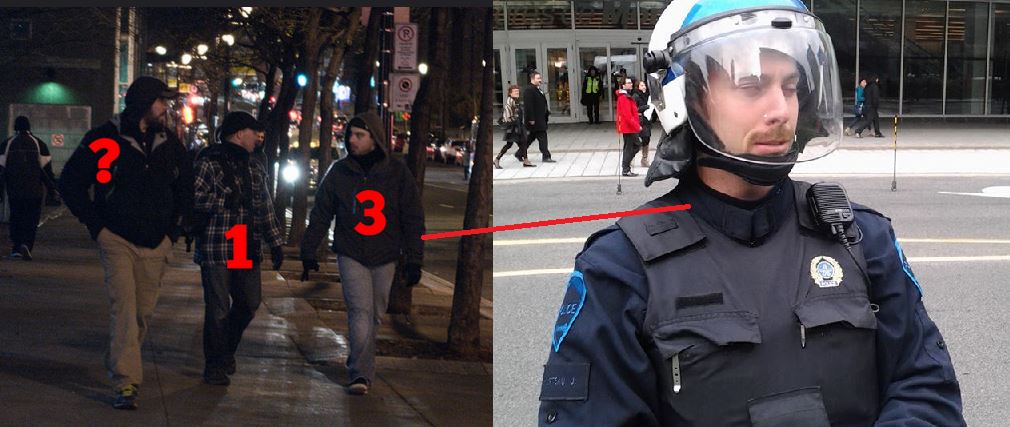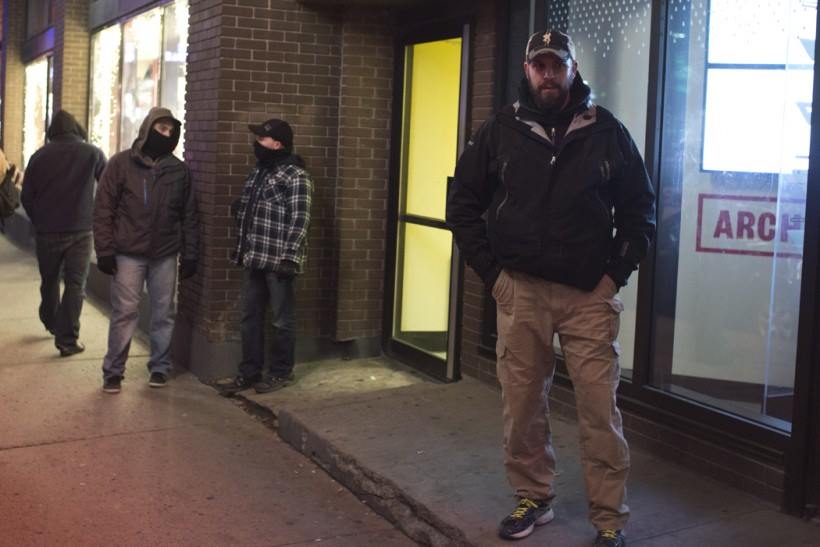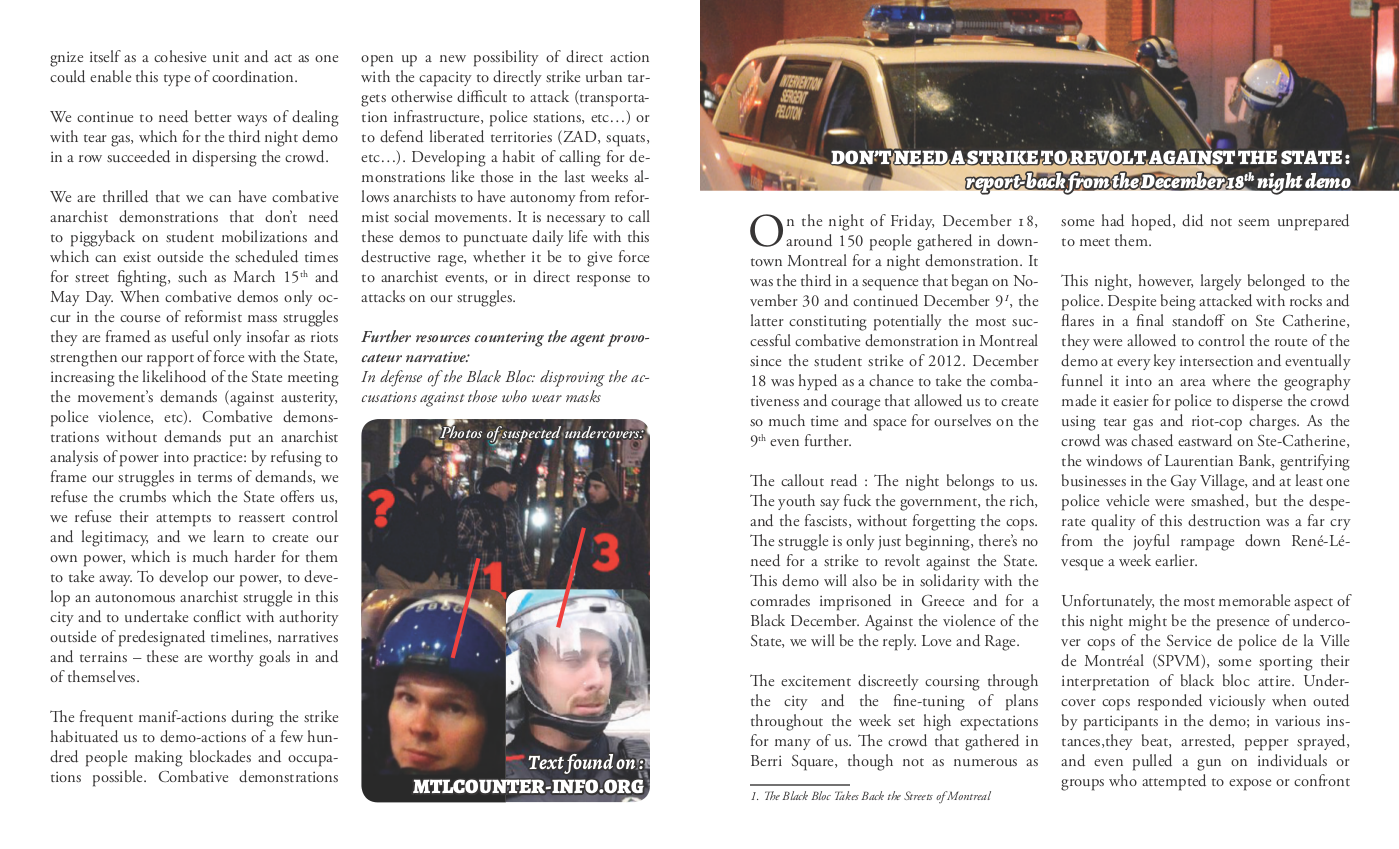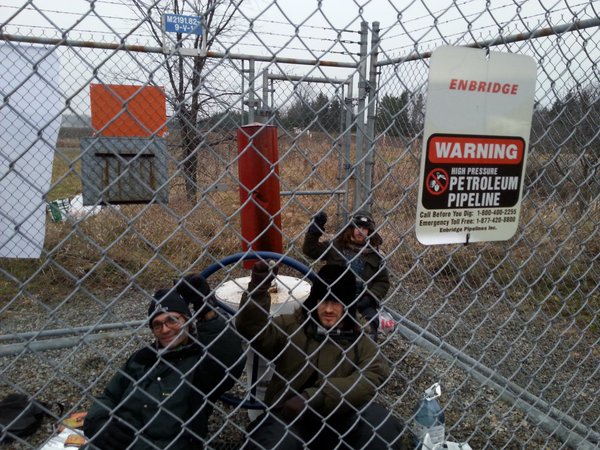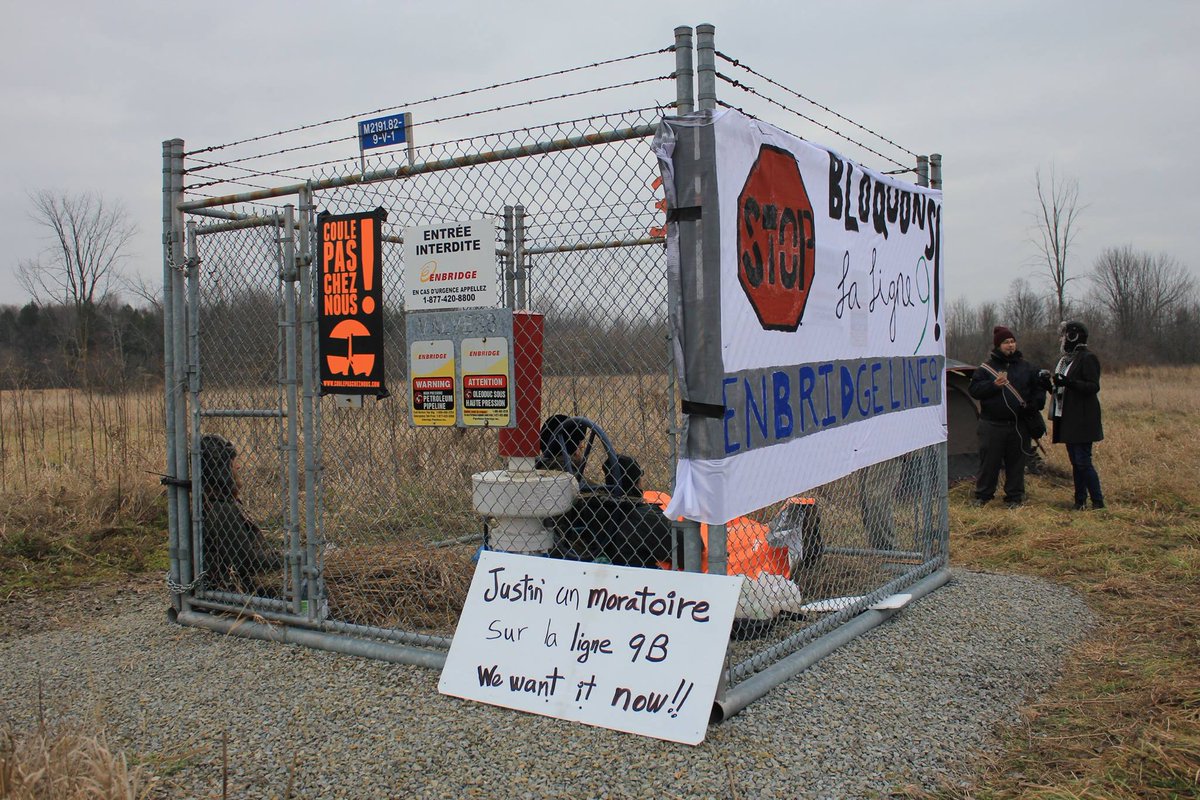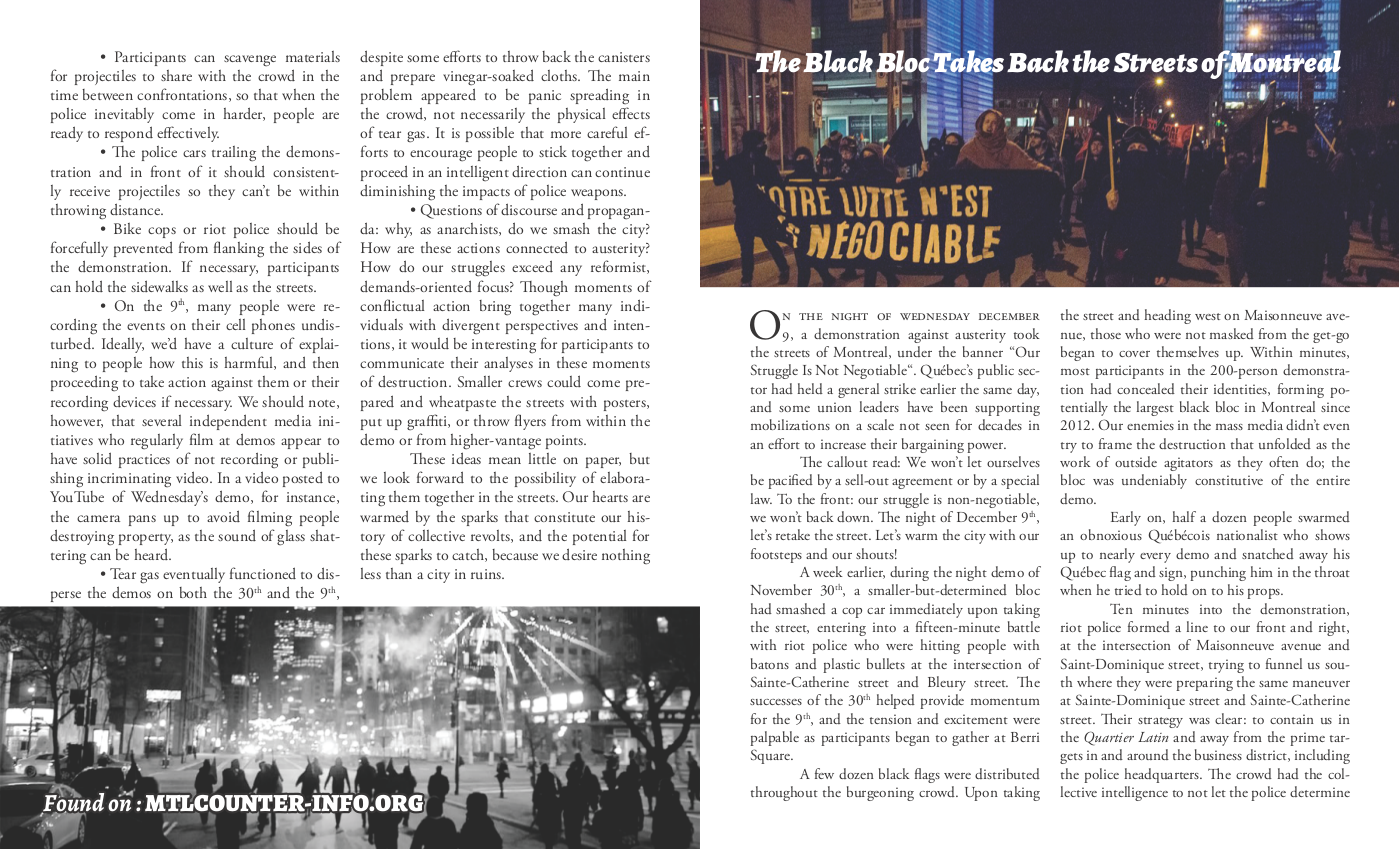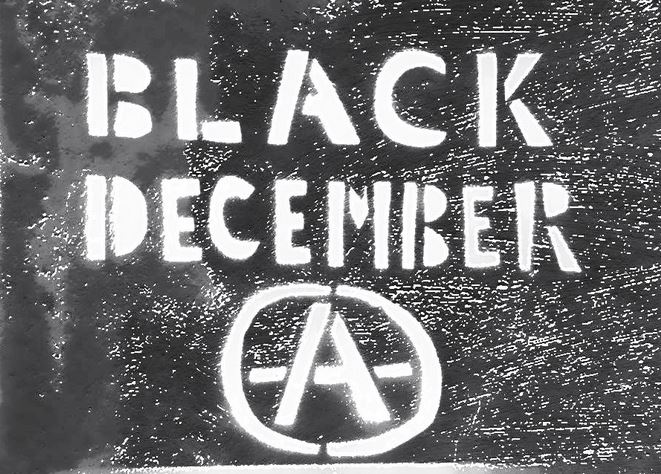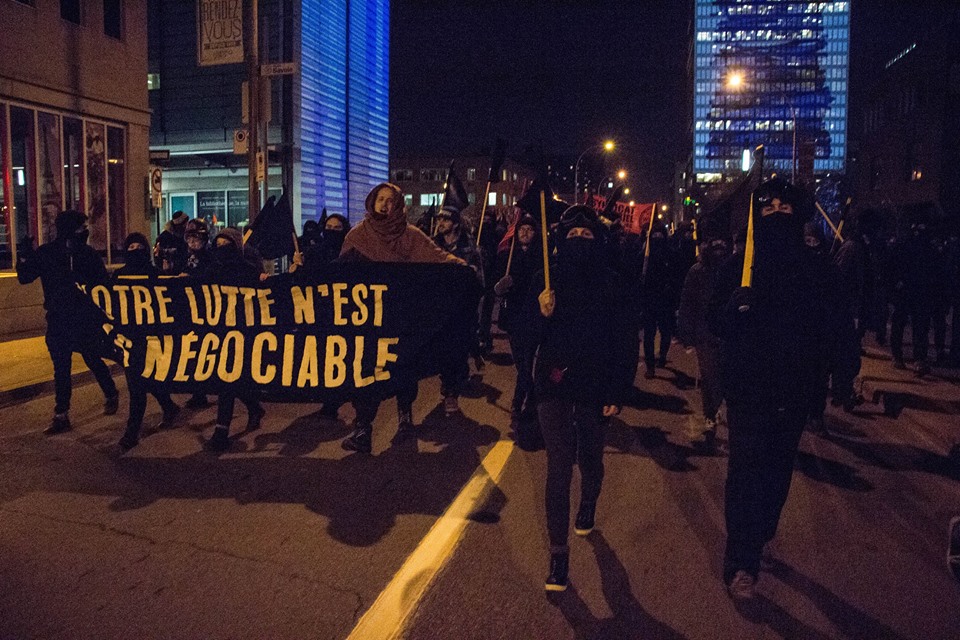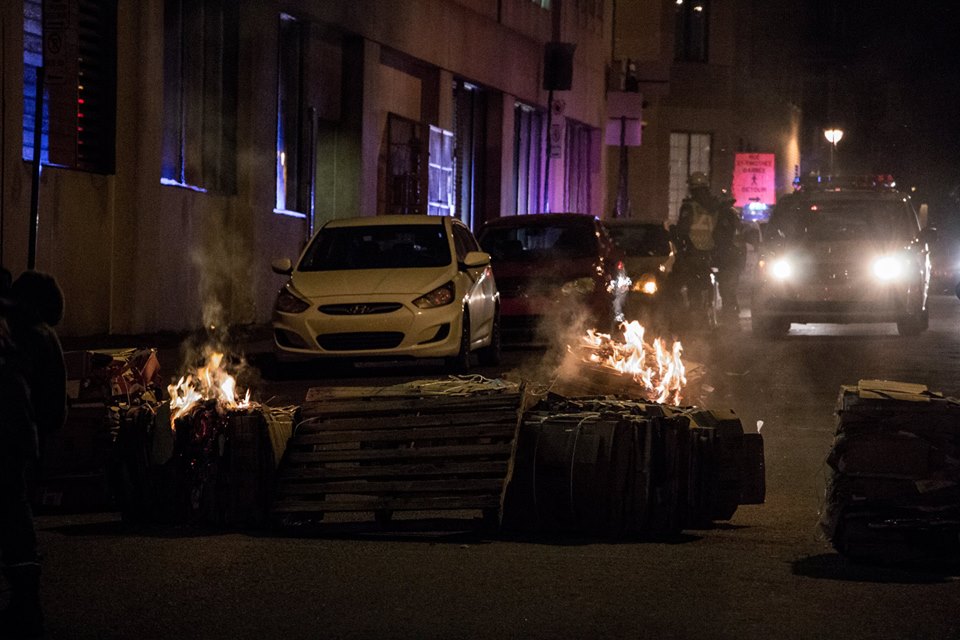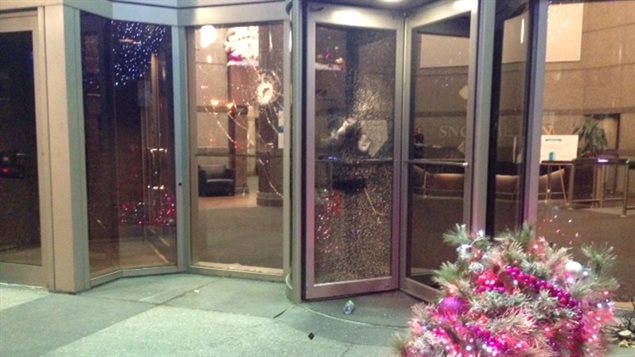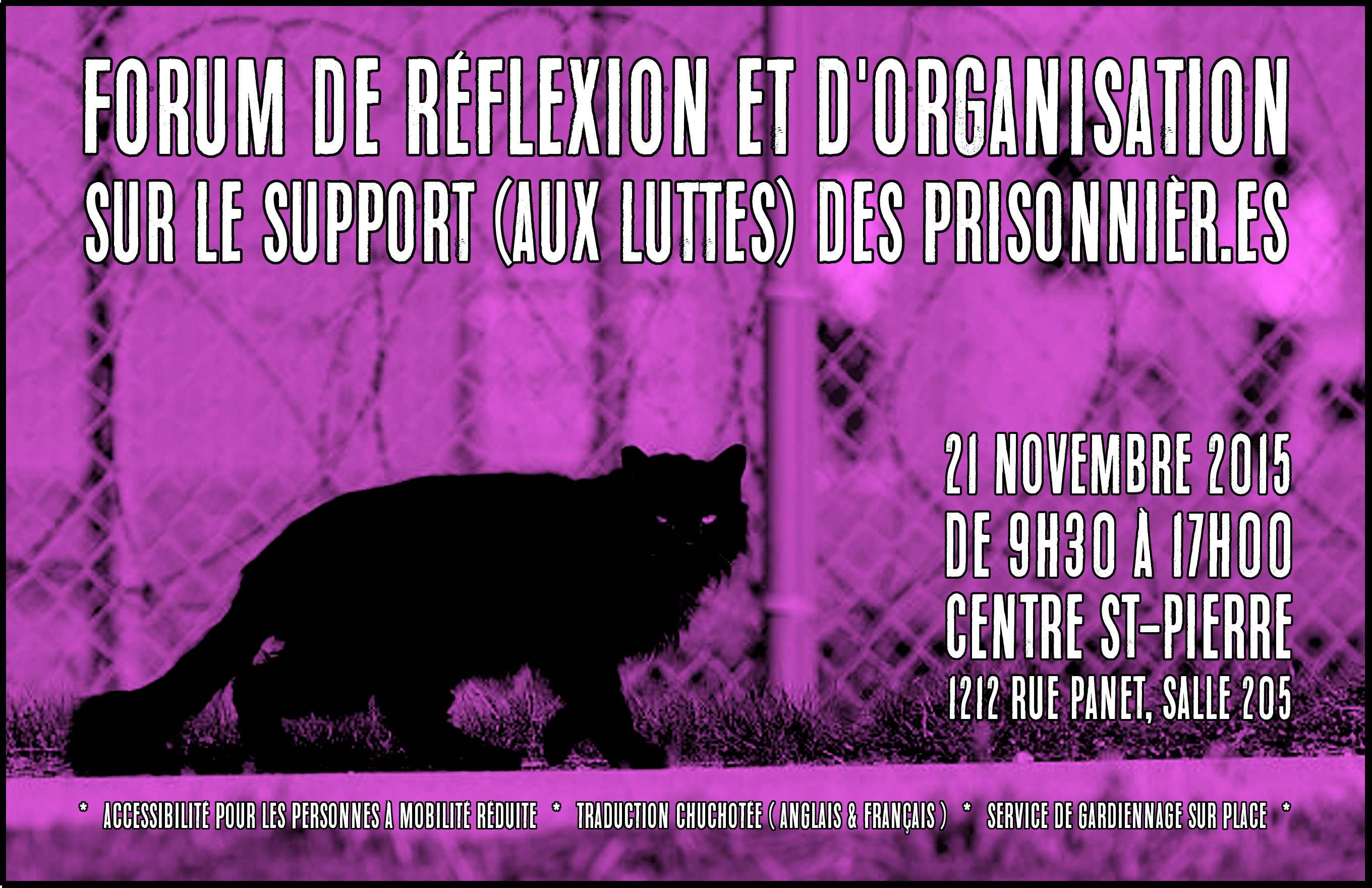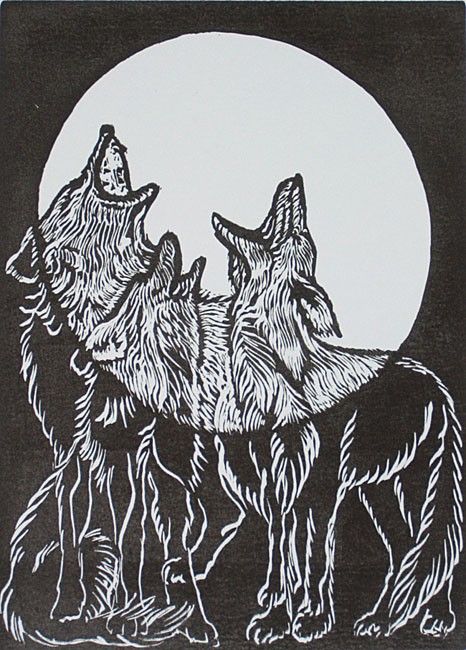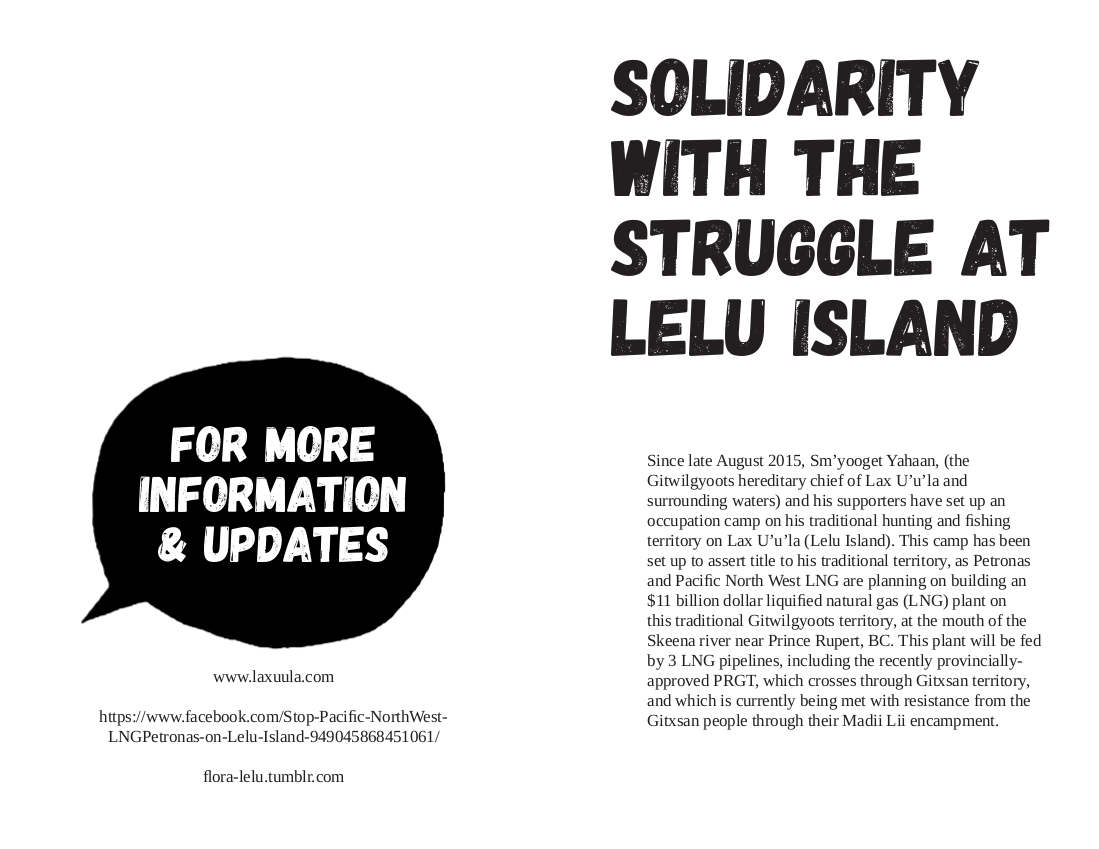On the night of Friday, December 18, around 150 people gathered in downtown Montreal for a night demonstration. It was the third in a sequence that began on November 30 and continued December 9, the latter constituting potentially the most successful combative demonstration in Montreal since the student strike of 2012. December 18 was hyped as a chance to take the combativeness and courage that allowed us to create so much time and space for ourselves on the 9th even further.
The callout read : The night belongs to us. The youth say fuck the government, the rich, and the fascists, without forgetting the cops. The struggle is only just beginning, there’s no need for a strike to revolt against the State. This demo will also be in solidarity with the comrades imprisoned in Greece and for a Black December. Against the violence of the State, we will be the reply. Love and Rage.
The excitement discreetly coursing through the city and the fine-tuning of plans throughout the week set high expectations for many of us. The crowd that gathered in Berri Square, though not as numerous as some had hoped, did not seem unprepared to meet them.
This night, however, largely belonged to the police. Despite being attacked with rocks and flares in a final standoff on Ste Catherine, they were allowed to control the route of the demo at every key intersection and eventually funnel it into an area where the geography made it easier for police to disperse the crowd using tear gas and riot-cop charges. As the crowd was chased eastward on Ste-Catherine, the windows of Laurentian Bank, gentrifying businesses in the Gay Village, and at least one police vehicle were smashed, but the desperate quality of this destruction was a far cry from the joyful rampage down René-Lévesque a week earlier.
.
Unfortunately, the most memorable aspect of this night might be the presence of undercover cops of the Service de police de la Ville de Montréal (SPVM), some sporting their interpretation of black bloc attire. Undercover cops responded viciously when outed by participants in the demo; in various instances,they beat, arrested, pepper sprayed, and even pulled a gun on individuals or groups who attempted to expose or confront them. It’s been a while since the cops have made such a brazen attempt to infiltrate a demo in Montreal, and we see it as a direct response to the popularity and effectiveness of black bloc tactics on December 9. By sending such easy-to-spot undercovers into combative demos to attack protesters, the SPVM makes its goal (beyond injuring and terrorizing its enemies) clear enough: to generate distrust of others who mask up in order to defend themselves against repression.
The police hope that people will equate those who conceal their identities with agents provocateurs, creating a climate that discourages people from adopting black bloc tactics and therefore facilitates the police’s control over the situation. Within hours of the dispersal of the demo, images and accounts of the infiltrators began to go viral on social media; some peaceful-protester-types were already playing the cops’ game by publicly arguing that attacks on police which were carried out by anarchists on December 18 were in fact the work of the undercovers, who (according to this their logic) would have endangered fellow cops in order to blend in or justify police counter-attacks.
The threat of undercovers in demos isn’t new, and we think the best ways of countering it remain the same. We benefit from large and well-executed black blocs, in which people are as indistinguishable from one another as possible so that undercovers are less able to keep track of everything that’s going on or gather valuable evidence against any one participant. The bloc and the entire crowd should stay relatively tight, to make it harder for undercovers to carry out targeted arrests by attacking someone and dragging them away from the crowd. When demonstrators are able to identify undercovers with certainty, they should be forcefully ejected such that their employers are deterred from repeating the mistake of sending them in. Let’s remember the March 15th demo in 2010 where the black bloc chased similarly-dressed undercovers out with rocks, sticks and fireworks. Following this, the police abstained from using infiltrators for a while.
While people were rightly shaken by this incident, we also want to reflect on the demo as a whole. We remain encouraged by how we’ve materialized a spirit of revolt over the last three weeks, but we think Friday could have been so much more, and, without announcing tactical adaptations in a public report-back, we want to offer a few thoughts on why we were so vulnerable to police interventions.
While participants were masking up in the first blocks of the route, live-streaming cameras were yet again filming from every direction. An analysis from a report back on the 9th bears repeating; “Ideally, we’d have a culture of explaining to people how this is harmful, and then proceeding to take action against them or their recording devices if necessary. We should note, however, that several independent media initiatives who regularly film at demos appear to have solid practices of not recording or publishing incriminating video.” We would add that regardless of editing practices, filming should be not considered acceptable in the first fifteen minutes of a demonstration (while everyone is masking up), as it feeds police valuable evidence.
Our position weakened each time we let the police dictate our route by blocking off two out of four directions in an intersection, but there was no major effort by any part of the demo to either bring the crowd to a stop and confront the police lines in hope of punching through, or reverse course (like on December 9 when a quick, well-executed reversal allowed us to evade police control). In the past, we’ve been guilty of expecting such decision-making to come from presumed organizers at the front of the demo, but there is also a strong night-demo culture of autonomous groups proposing plans that get put into action if enough people are into them. In the absence of this autonomous intelligence and with the front of the demo proceeding at full speed past police lines, each block we passed felt like we were sinking deeper into a police trap. Historically, through a variety of methods, we ended mass kettling as well as the flanking sidewalk cops; our most urgent tactical need right now is probably to make it impossible for the police to decide the route of the demo by cordoning off streets at their leisure.
The cohesiveness of the bloc and its resulting capacity for coordination also left something to be desired. Dozens of people were in full bloc, with perhaps fifty more at least wearing masks, but we were often scattered throughout the crowd. On the 18th, the lack of cohesion made informal, real-time coordination between affinity groups more difficult, and the bloc’s actions largely failed to build on one another and create a whole greater than the sum of its parts. For instance, on several occasions cop lines were met with a volley of only two to three rocks – not enough to break the resolve of a cop in full riot gear. A barrage of thirty rocks, on the other hand, could realistically cause them to retreat or take cover, potentially opening up space for the demo to break away into more favorable terrain. The bloc being able to recognize itself as a cohesive unit and act as one could enable this type of coordination.
We continue to need better ways of dealing with tear gas, which for the third night demo in a row succeeded in dispersing the crowd.
We are thrilled that we can have combative anarchist demonstrations that don’t need to piggyback on student mobilizations and which can exist outside the scheduled times for street fighting, such as March 15th and May Day. When combative demos only occur in the course of reformist mass struggles they are framed as useful only insofar as riots strengthen our rapport of force with the State, increasing the likelihood of the State meeting the movement’s demands (against austerity, police violence, etc). Combative demonstrations without demands put an anarchist analysis of power into practice: by refusing to frame our struggles in terms of demands, we refuse the crumbs which the State offers us, we refuse their attempts to reassert control and legitimacy, and we learn to create our own power, which is much harder for them to take away. To develop our power, to develop an autonomous anarchist struggle in this city and to undertake conflict with authority outside of predesignated timelines, narratives and terrains – these are worthy goals in and of themselves.
The frequent manif-actions during the strike habituated us to demo-actions of a few hundred people making blockades and occupations possible. Combative demonstrations open up a new possibility of direct action with the capacity to directly strike urban targets otherwise difficult to attack (transportation infrastructure, police stations, etc…) or to defend liberated territories (ZAD, squats, etc…). Developing a habit of calling for demonstrations like those in the last weeks allows anarchists to have autonomy from reformist social movements. It is necessary to call these demos to punctuate daily life with this destructive rage, whether it be to give force to anarchist events, or in direct response to attacks on our struggles.
Further resources countering the agent provocateur narrative:
In defense of the Black Bloc: disproving the accusations against those who wear masks
Photographs of suspected undercovers :



